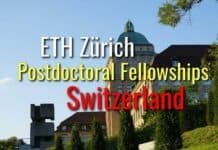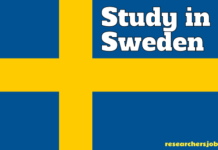PhD Position in Resilience: The Royal Netherlands Institute of Sea Research (NIOZ) is offering a PhD position focusing on the resilience of benthic communities in response to deep-sea mining. This role is part of the “MiningImpact 3” project, contributing to the understanding of environmental impacts in marine ecosystems.
PhD Position in Resilience of Benthic Communities to Deep-Sea Mining
Designation
PhD Student
Research Area
Benthic Biodiversity and Resilience to Deep-Sea Mining
| Details | Information |
|---|---|
| Organization | Royal Netherlands Institute of Sea Research (NIOZ) |
| Project | MiningImpact 3 |
| Supervisor | Dr. Sabine Gollner (NIOZ), Prof. Willem Renema (Naturalis) |
| Employment Duration | 4 years, subject to a positive evaluation after 1 year |
| Salary | Compliant with CAO-WVOI scales for PhD candidates |
Location
- Primary: NIOZ, Texel Island, Netherlands
- Collaboration: Naturalis, Leiden, Netherlands
Eligibility/Qualification
- A background in marine ecology
- Enthusiastic and independent with a keen interest in deep-sea biodiversity
- Experience with stereomicroscopes, genetic methods (e.g., barcoding, metabarcoding), and biodiversity research
- Strong communication skills in English
Description
The selected candidate will conduct field research and laboratory analyses to assess the impacts of deep-sea mining on biodiversity. Responsibilities include studying biodiversity on natural and artificial polymetallic nodules, as well as investigating organisms at inactive hydrothermal vents. Collaborative work with a biodiversity team and engagement in regular data exchanges will be emphasized, fostering a strong research community.
How to Apply
Candidates are required to submit their CV and cover letter through the application portal on the NIOZ website. References should also be provided as part of the application process.
Last Date for Apply
Closing Date: April 27, 2025
- Pre-Interview Selection: Before May 9, 2025
- Online Pre-Interviews: May 19 and May 20, 2025 (9 AM – 12 PM)
- In-person Interviews: Tentatively scheduled for May 23 or June 10, 2025
This is an excellent opportunity for individuals passionate about marine research and looking to contribute to significant environmental studies in the deep-sea ecosystem.









